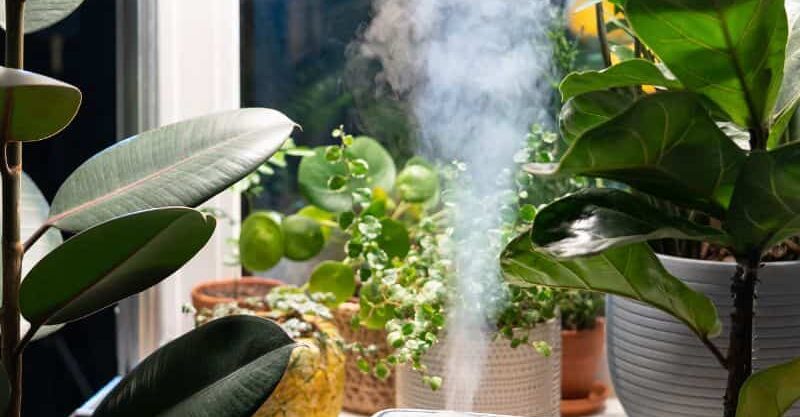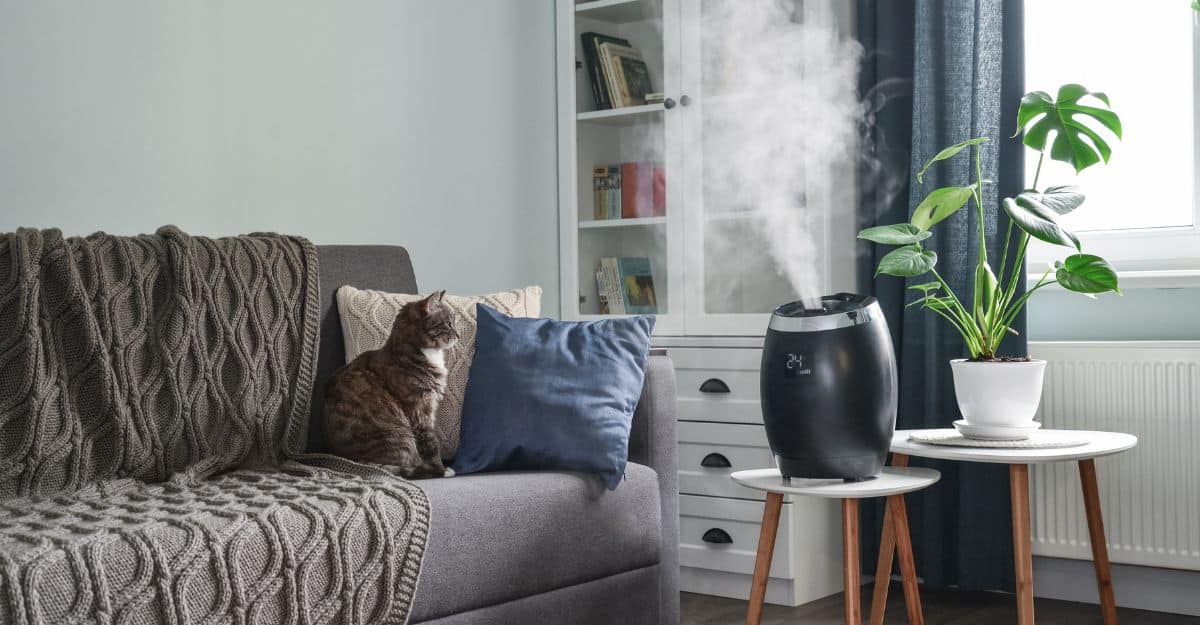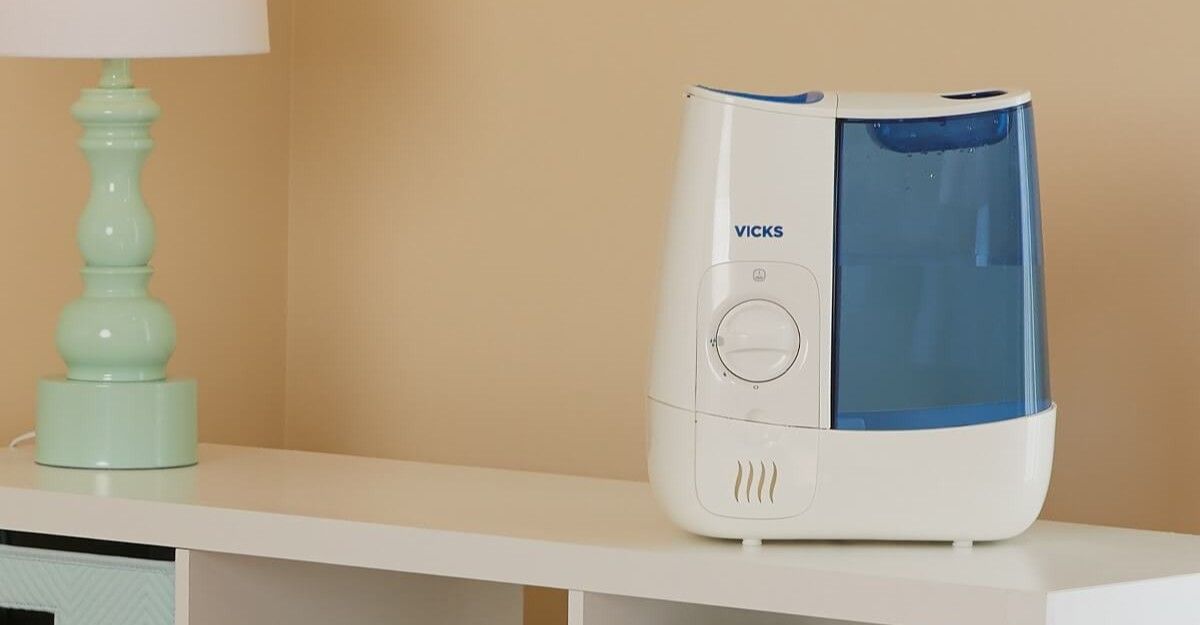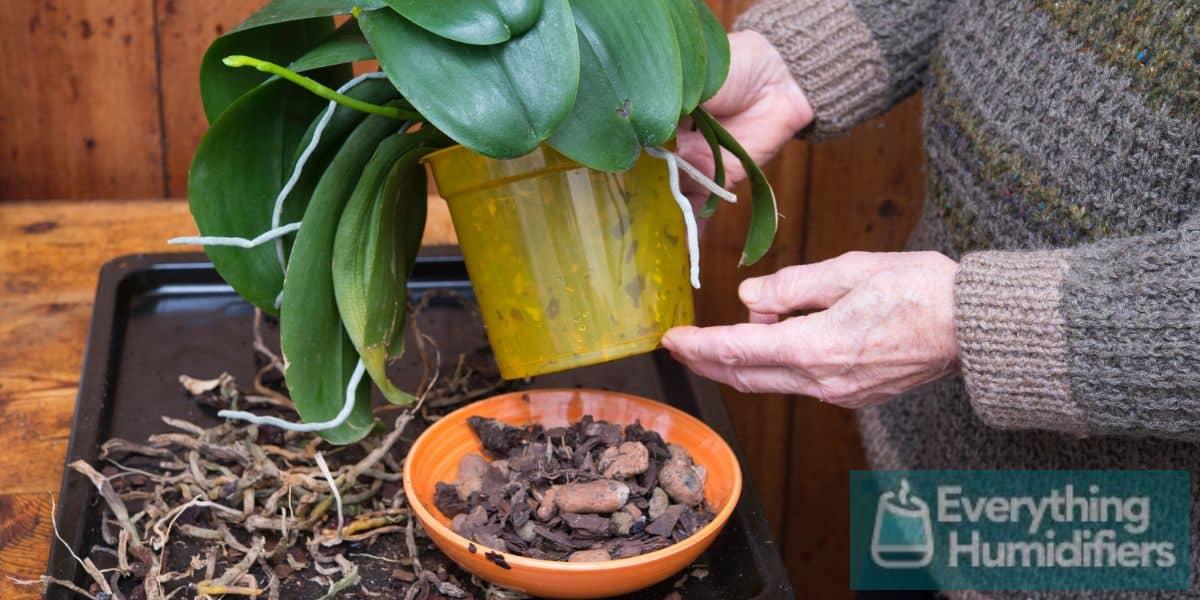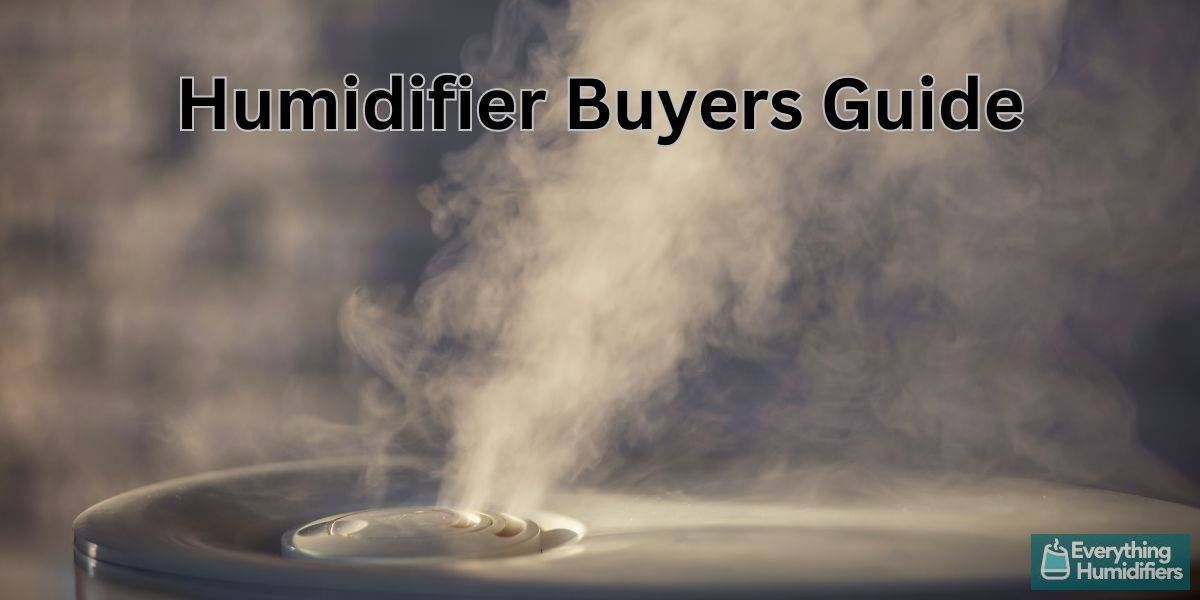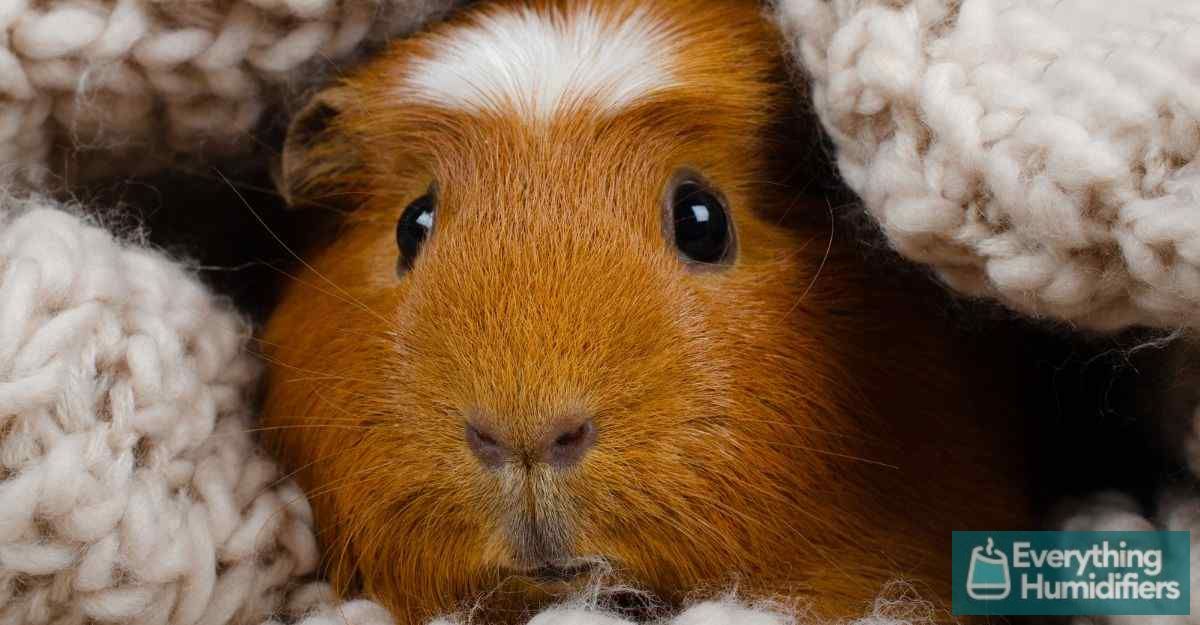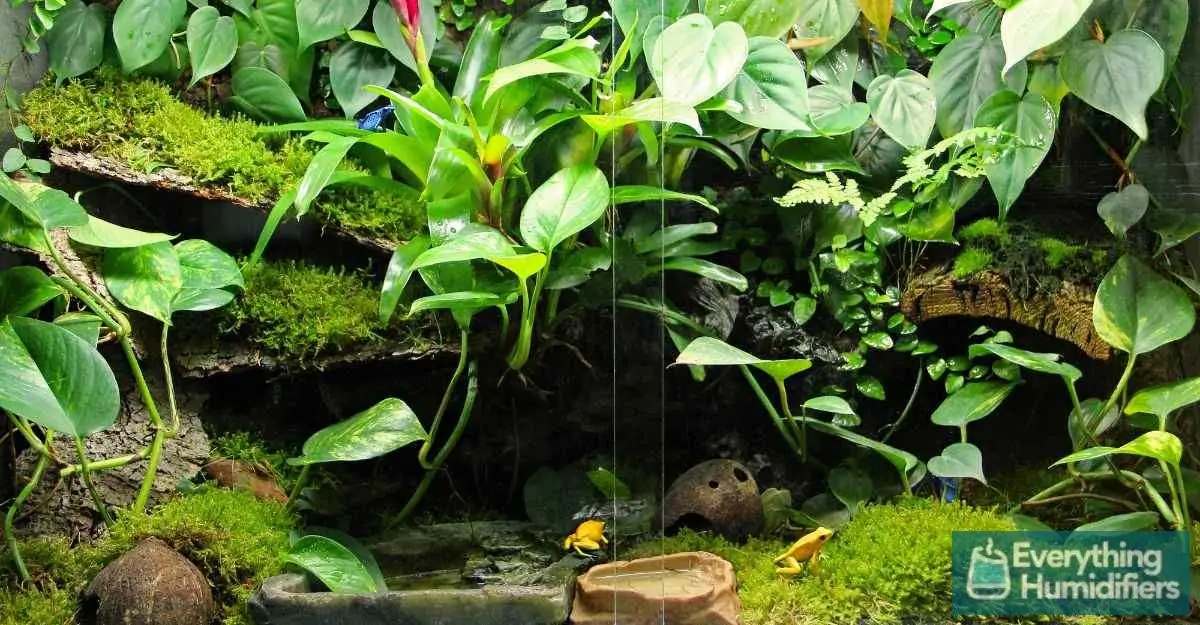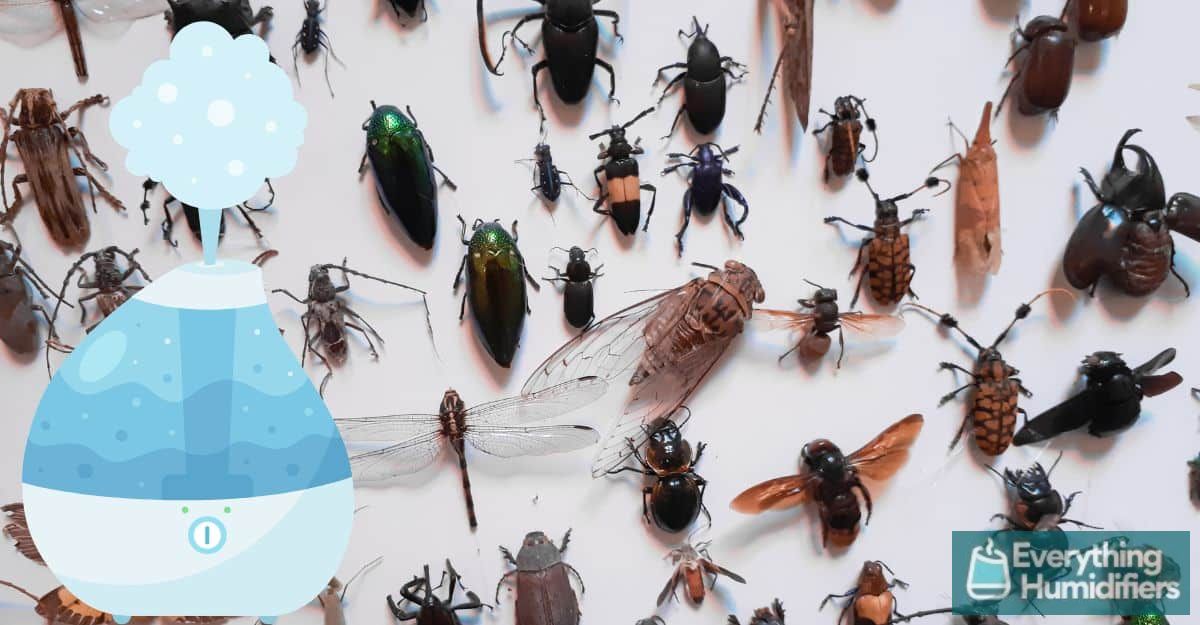Dry air can have detrimental effects not only on humans but also on our furry friends.
We all know the uncomfortable feeling of dry skin, dry eyes, respiratory problems, and general lethargy caused by cold and dry air.
Dry air with low humidity can cause dogs to suffer from respiratory problems, dry skin, dry coats, dry eyes, hair loss, and allergies.
A humidifier increases humidity and will add moisture to the air. This will result in more comfortable and healthier living conditions for you and your pets.
This article will discuss the signs your dog needs a humidifier and how to choose the right one for your pet.
What is a humidifier, and how does it work?
A humidifier is a device that converts water into water vapor and dispels the vapor into the air. This increases the air’s water content, known as humidity.
An average home will have a humidity reading of around 30% to 60%.
Weather conditions, air conditioners, and HVAC systems all contribute to increasing or decreasing the humidity.
Most people have yet to learn what the humidity is in their homes! But you can quickly get the answer by using a hygrometer. This small, inexpensive device will display the humidity percentage on a small screen.
Signs that your dog needs a humidifier
Let’s look at some of the signs –

Dry skin
Dry air has no moisture and your dog’s skin can become dry, flaky, and irritated.
The skin gets itchy, causing dogs to scratch, leading to hair loss and dandruff. If scratching is not controlled, it can lead to bleeding and open wounds that attract infections.
A humidifier increases moisture and soothes dry skin. To learn more about dandruff in dogs, here is an interesting article from PetMD.
Dry Coat
Think of your dog’s coat in the same way as you think about your hair. Are you having a bad hair day?
Dry air causes hair to lose moisture and become brittle, limp, and flaky. It loses its natural sheen and looks dull and lifeless.
Adding moisture to the air will improve a dry coat, making it supple, soft, smooth, and shiny.
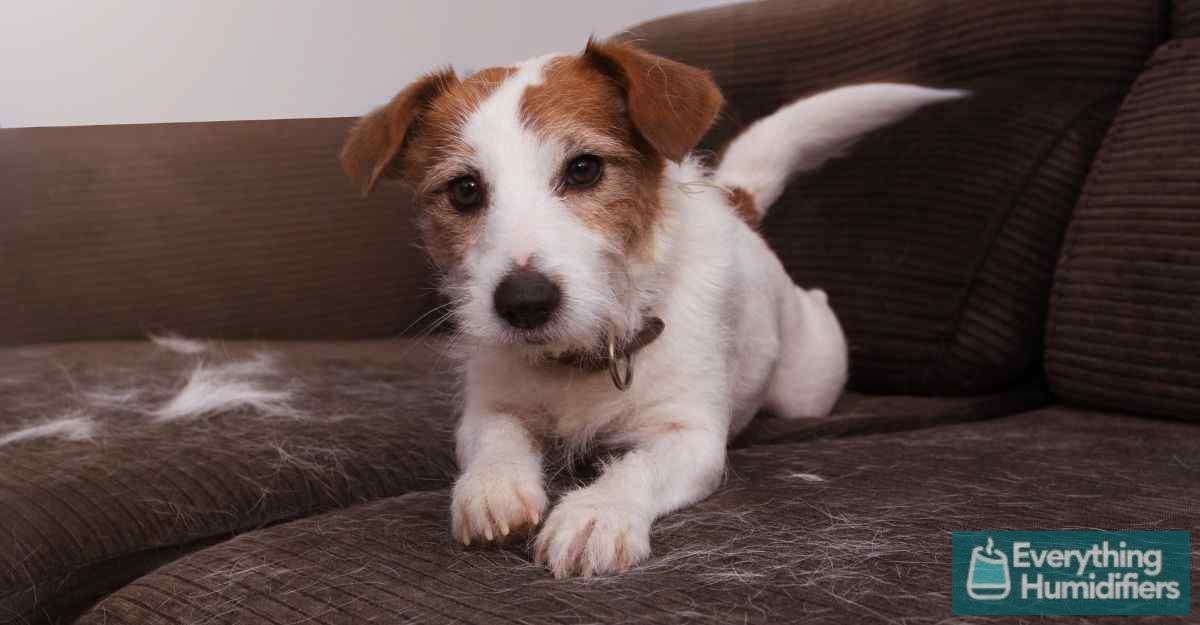
Excessive shedding
While shedding hair is natural, excessive shedding can be due to dry air.
This is particularly noticeable in winter when dogs do not usually shed. Dry air can strip the natural oils from a dog’s skin and coat, leaving it dry and brittle. This causes the hair to become weak and prone to breakage, leading to excessive shedding.
A humidifier adds moisture that helps maintain the oil levels in the skin.
Respiratory problems
Dry air can cause your dog to cough, wheeze, and show signs of labored breathing.
The natural mucus in the nasal system dries up and causes the passages to become inflamed.
Scabs and sores can form, creating additional issues.
Dry air can make breathing harder for your dog, especially if they have respiratory issues such as asthma.
Some breeds of dogs with flat noses like bulldogs and pugs, suffer from breathing problems due to excessive tissue on their neck and throat.
By adjusting your humidity levels, the moist air softens the mucus and allows it to flow naturally, reducing respiratory problems in your beloved pets.
Snoring
You love your dog but don’t want it to keep you awake at night.
Snoring is caused by obstructed nasal passages, dry or congested airways.
Infections
Many airborne viruses and microbes float more easily and spread rapidly in dry air. This can cause infections, allergies, and respiratory irritations in your dog.
Increasing the humidity makes living conditions less pleasant for these micro-organisms and they will seek other more suitable breeding grounds.
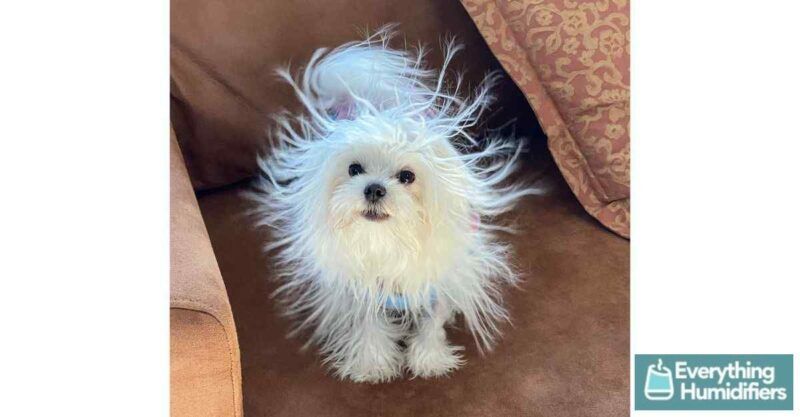
Static electricity
Touching an object and getting a static shock is not fun. And your dog will feel the same way.
Static electricity builds up in dry air and accumulates in carpets, furniture, curtains, and other household items.
Sensitive animals become highly stressed if they are continually shocked by static electricity.
Adding moisture to the air is a great way to reduce static electricity.
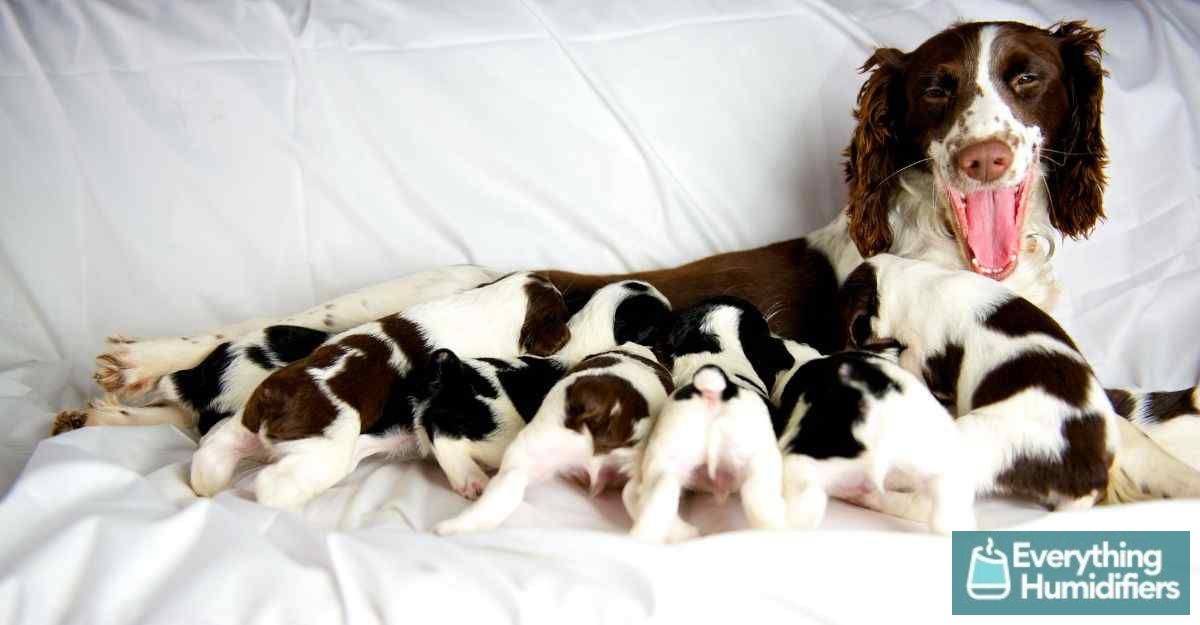
Nursing dogs and puppies
Puppies cannot efficiently regulate their body temperature until they are three or four weeks old.
Older dogs pant to reduce their body temperature in hot weather or shiver to increase it in cold weather.
If you have young pups and a nursing mother, you must ensure the humidity levels are ideal for both.
Installing a humidifier and setting the level to 65 percent will be ideal for keeping your pups and Mum happy and healthy.
Choosing the Right Humidifier for Your Dog
Choosing the right humidifier for pets is essential. You should consider the type, noise level, room size, maintenance requirements, aesthetics, and budget.
Here are the main factors to consider –
Cool mist humidifiers vs. warm mist humidifiers
Cool mist devices are generally considered safer as they don’t use hot water. They are also quieter than warm mist humidifiers.
Warm mist humidifiers are very effective in small spaces and can quickly help relieve dog congestion and coughing. They are less likely to produce white mineral dust than cool mist humidifiers.
White mineral dust is created when tap or hard water is used to fill the tank.
Room size
It is essential to choose a humidifier capable of humidifying your room’s entire area.
Buying a too-large humidifier will create a damp and humid environment.
A device that is too small will be ineffective. Please look at our Humidifier Buyers Guide for all you need to know.
Noise levels
Some humidifiers are noisier than others. Consider whether you need to sleep near your device, as a constant hissing sound can be disturbing.
Aesthetics
Choose a humidifier that is pleasing to look at. It will become a permanent feature in your home and should be nice to look at.
Smart features
More expensive humidifiers offer SMART features like automatic shut-off, water level warnings, and automatic control of your pre-set humidity levels. This will depend on your dog’s needs, your budget and personal preference.
Maintenance
Humidifiers need to be filled regularly. The smaller the device, the more frequently you need to fill it. Consider your time availability, the tank size, and the physical work needed.
Humidifiers must be cleaned regularly to prevent the growth of mold and mildew. You will need to add this to your weekly chores.
Safety of your pet
Always ensure that your humidifier cannot be knocked over and is positioned in a safe place where it won’t harm your pet.
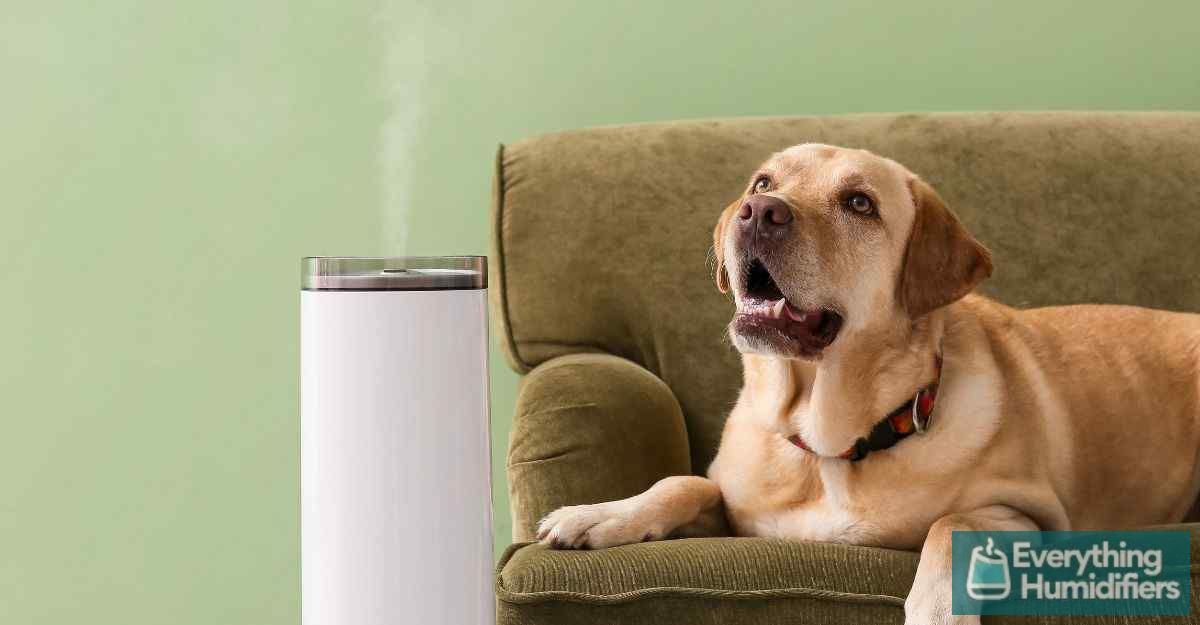
Frequently Asked Questions
What type of humidifier is best for dogs?
The best type of humidifier for dogs is a cool mist humidifier.
Are humidifiers suitable for dogs with itchy skin?
Yes, humidifiers are good for dogs with itchy skin as they can help moisturize and relieve itching.
Can a warm-mist humidifier be used for dogs?
While warm-mist humidifiers can be used for dogs, it is recommended to use a cool mist humidifier as it poses less risk of burns or accidents.
How does a humidifier increase the humidity in the air?
A humidifier increases the humidity in the air by emitting a fine mist or vapor.
Are evaporative humidifiers safe for dogs?
Yes, evaporative humidifiers are safe for dogs.
Are humidifiers safe from bacteria and viruses?
Humidifiers may not be entirely safe from bacteria and viruses, but regular cleaning and maintenance can minimize the risk.
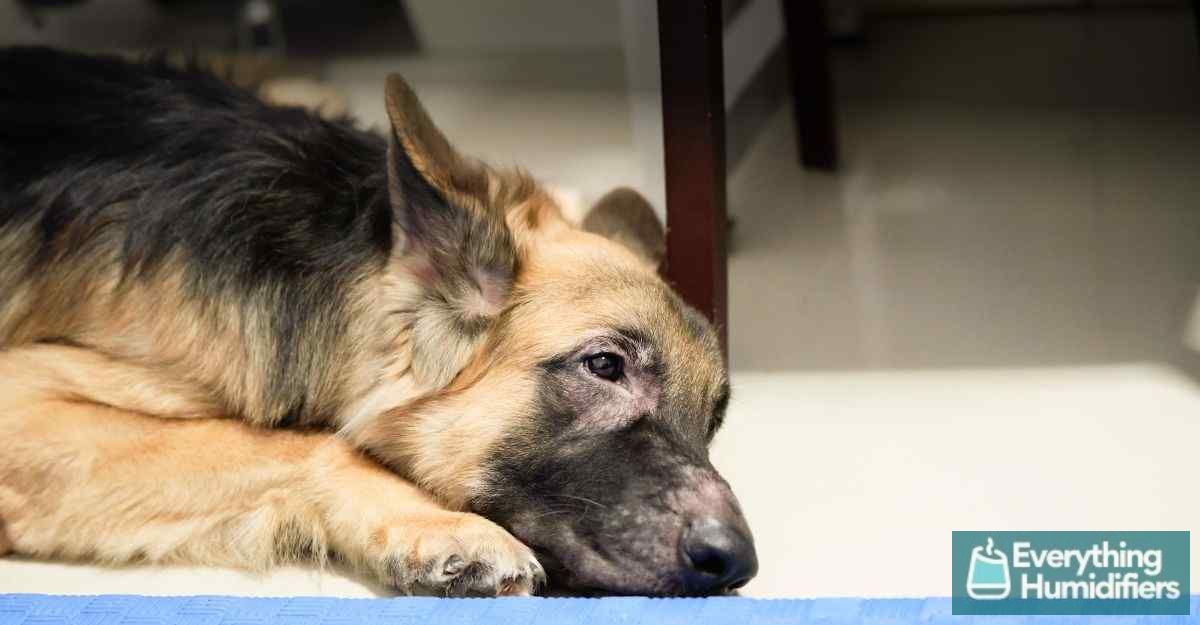
Look for signs that your dog needs a humidifier!
If your dog does not seem to be his/her usual happy self, look out for problem signs caused by dry air.
These can be dry skin, dry coat, respiratory issues, snoring, shedding hair, infections, and stress caused by static electricity.
Consider installing a humidifier – it will help alleviate most of these problems. However, if you are in doubt, don’t risk your furry best friend and seek the advice of your local veterinarian.

